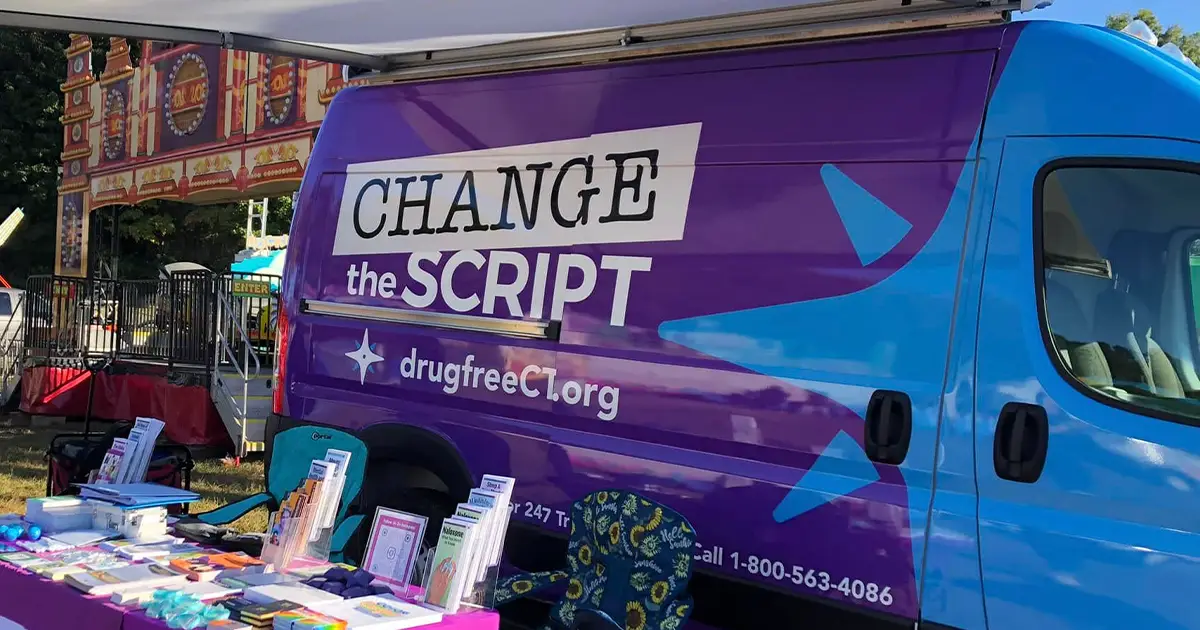At Wheeler, Prevention, Wellness, and Recovery efforts form the foundation of our work to support healthier individuals and stronger communities. Through a combination of outreach, education, and evidence-based training, Wheeler helps people of all ages access the tools and resources they need to live well, physically, mentally, and emotionally.
These programs encompass a wide range of services, from mental health and substance use prevention to harm reduction, wellness promotion, and professional development. The team supports individuals, families, and professionals across Connecticut, using culturally inclusive, research-based approaches that meet people where they are.
One of the most valuable community resources is Wheeler’s statewide prevention library- Connecticut Clearinghouse, which offers both in-person and online access to books, e-books, and materials for all ages. The collection includes children’s books that help families address topics such as trauma, grief, conflict resolution, and recovery during home visits or therapy sessions. Resources can be borrowed by anyone with a standard library membership, and Wheeler employees can request materials through interoffice mail for their own education or for use with clients. The library also features a conference room for staff training and professional development, ensuring that learning and prevention are accessible for everyone.
 The team’s outreach extends well beyond its walls. The Change the Script vans travel across the state to deliver resources directly to communities at health fairs, family fun days, and other events. Staff distribute harm-reduction tools such as naloxone and fentanyl test strips, and they connect individuals to services, including support for those experiencing housing insecurity. The Southington Health Outreach Program partners with local organizations like libraries, food pantries, and YMCAs to help reach people who might otherwise face barriers to care. The Youth Recovery CT initiative coordinates a statewide network of SMART Recovery support groups to increase options and access to recovery supports for youth, young adults and families.
The team’s outreach extends well beyond its walls. The Change the Script vans travel across the state to deliver resources directly to communities at health fairs, family fun days, and other events. Staff distribute harm-reduction tools such as naloxone and fentanyl test strips, and they connect individuals to services, including support for those experiencing housing insecurity. The Southington Health Outreach Program partners with local organizations like libraries, food pantries, and YMCAs to help reach people who might otherwise face barriers to care. The Youth Recovery CT initiative coordinates a statewide network of SMART Recovery support groups to increase options and access to recovery supports for youth, young adults and families.
High quality training and professional development is another cornerstone of the program. The Clearinghouse team of 17 professionals, include project coordinators, supervisors, training specialists, and a librarian. They deliver more than 500 training and development opportunities each year. These include Mental Health First Aid, QPR (Question, Persuade, Refer), ASIST (Applied Suicide Intervention Skills Training), and AID (Awareness, Interaction, Direction). The trainings are designed to equip individuals, agencies, and communities with practical skills to recognize and respond to behavioral health challenges.
Cathy Sisco, MPA, CPS, senior director of Prevention, Wellness, and Recovery, speaks very highly of her team. She says, "The team is truly collaborative. Each person has a primary role and is always happy to jump in on any project that needs help. We know we are making a difference everyday by providing support, information and resources that help people achieve and maintain wellness."
Each year, the Connecticut Clearinghouse hosts the Prevention Summit, the Suicide Prevention Conference, National Prevention Week activities and an array of Educational Forums, drawing hundreds of participants from across the state. These events foster collaboration among professionals, students, and community members who share a commitment to promoting wellness and preventing substance use and suicide.
Looking ahead, the team continues to grow and adapt to meet the evolving needs of the communities they serve. Plans include expanding library materials in multiple languages, strengthening partnerships with senior centers, police departments, and colleges, and developing new strategic initiatives informed by community input and data. The Collegiate Recovery Program, funded by the opioid settlement and based on the National SAFE Project model, represents one of the newest efforts to support recovery on college campuses.
Through collaboration, compassion, and commitment, Wheeler’s Prevention, Wellness, and Recovery programs are helping to create a future where every individual has access to the education, tools, and support needed to thrive.